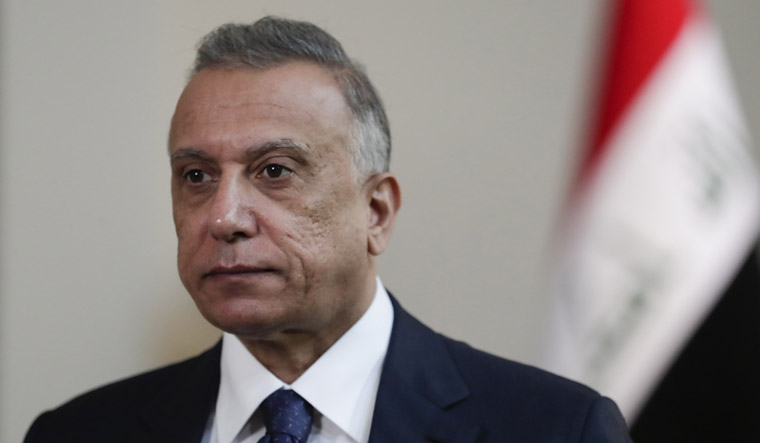Iraq Prime Minister Mustafa al-Kadhimi survived an assassination attempt after an explosive-laden drone targeted his residence in the Green Zone in Baghdad. According to multiple reports, at least five security guards were injured, but the prime minister himself was completely unharmed. He tweeted in the immediate aftermath: "I am fine and among my people. Thank God. The rockets of treason will not shake one bit of the steadfastness and determination of the heroic security forces."
So far, no group has come out to claim the attack. However, the incident, as Reuters reported, comes after violent protests in the Iraqi capital over the result of a general election last month. The groups leading protests are heavily-armed Iran-backed militias which lost much of their parliamentary power in the polls. They had alleged voting and vote-counting irregularities.
What are the faultlines, and what is happening on the streets?
Iran maintains an oversized influence over neighbouring Iraq with the use of multiple militias and Shia Muslim leaders beholden to Tehran. However, it is worth noting though that Shia Muslims, who make up the majority in Iraq, are by no means a monolith—they are politically and factionally divided, with a large group extremely unhappy with Tehran's heavy hand. In fact, the recent Iraqi elections, on October 10, were held partly to mollify angry citizens (predominantly Shiite), who were holding massive rallies against unemployment, economic woes, corruption, and Iran's influence in Iraqi affairs.
The results of the poll were illuminating. The biggest electoral gains were made by influential Shiite cleric Muqtada al-Sadr, who won 73 out of 329 parliament seats. He publicly opposes external interference in Iraq's affairs. The Taqadum party led by Parliament Speaker Mohammed al-Halbousi, a Sunni, came second with 37 seats, while former prime minister Nouri al-Maliki's State of Law bloc (allied with Iran-backed militia) won 35 seats. "Even politicians who distanced themselves from Tehran several years ago, such as former prime minister Haidar al-Abadi and cleric Ammar al-Hakim, fared poorly," wrote political analyst Tamer Badawi, an associate fellow with CARPO research centre.
However, the clearest Tehran favourites took a walloping. Iran-backed Fatah Alliance, that represents the Shiite paramilitary group known as the Popular Mobilisation Forces (PMF), lost two-thirds of its parliament seats, dropping from 48 to around 16. The alliance had made big gains after participating in elections for the first time in 2018. At the time, it was riding a wave of popularity after playing a major role, alongside Iraqi security forces and a US-led coalition, in the defeat of Islamic State group extremists across the country in 2017.
But, the mood had soon changed. Many began questioning the need for the PMF, an armed militia force that increasingly challenged the state's authority. The force itself has splintered, with some factions aligned with top Shiite cleric Grand Ayatollah Ali al-Sistani breaking away. The militias also lost some popularity in the past two years, alienating many after taking part in brutally suppressing the youth-led protest movement in late 2019 and early 2020.
Mass protests by the Iranian proxies followed the electoral results. Scores of people were injured, mostly members of Iraqi security forces, when supporters of pro-Iran Shiite militias who had camped outside Baghdad scuffled with anti-riot police last week.




